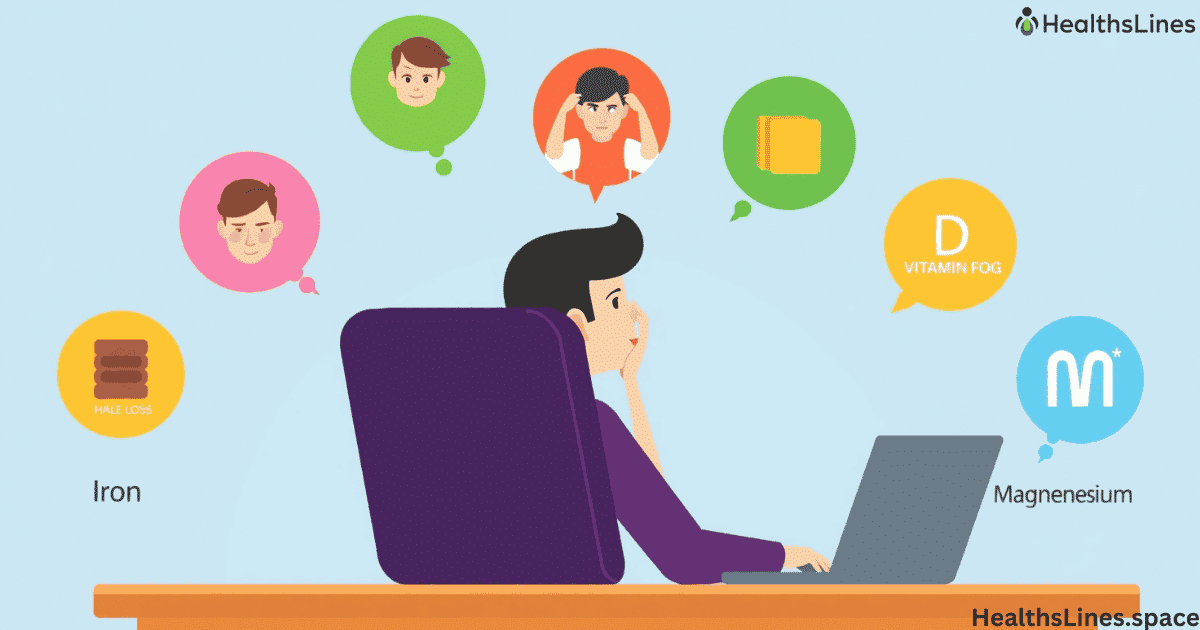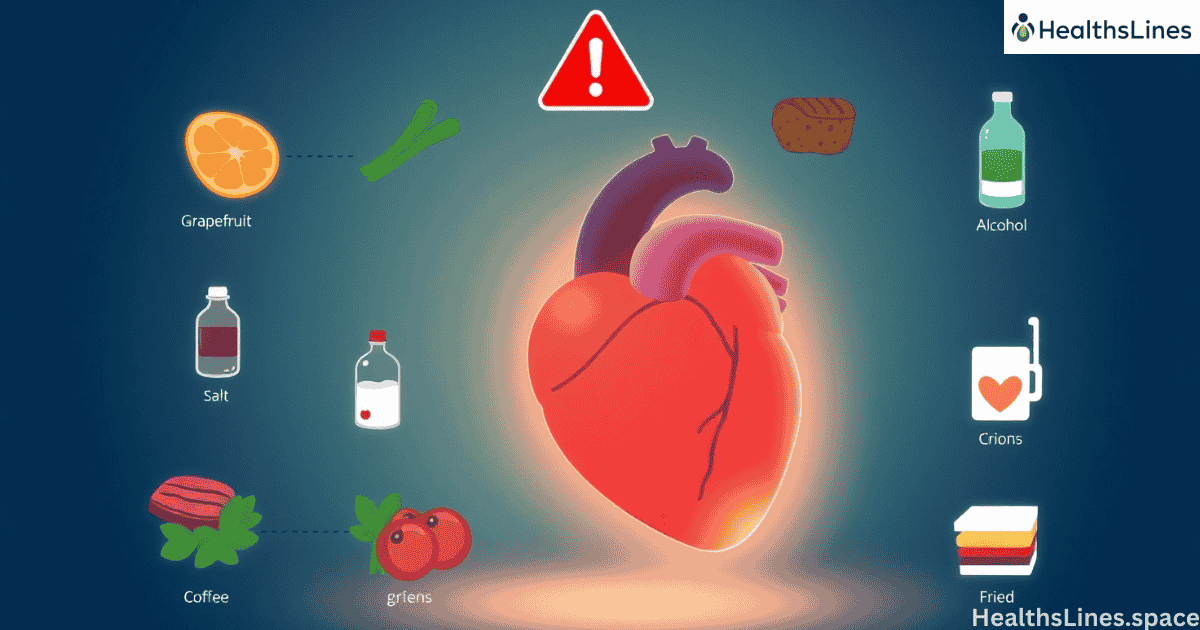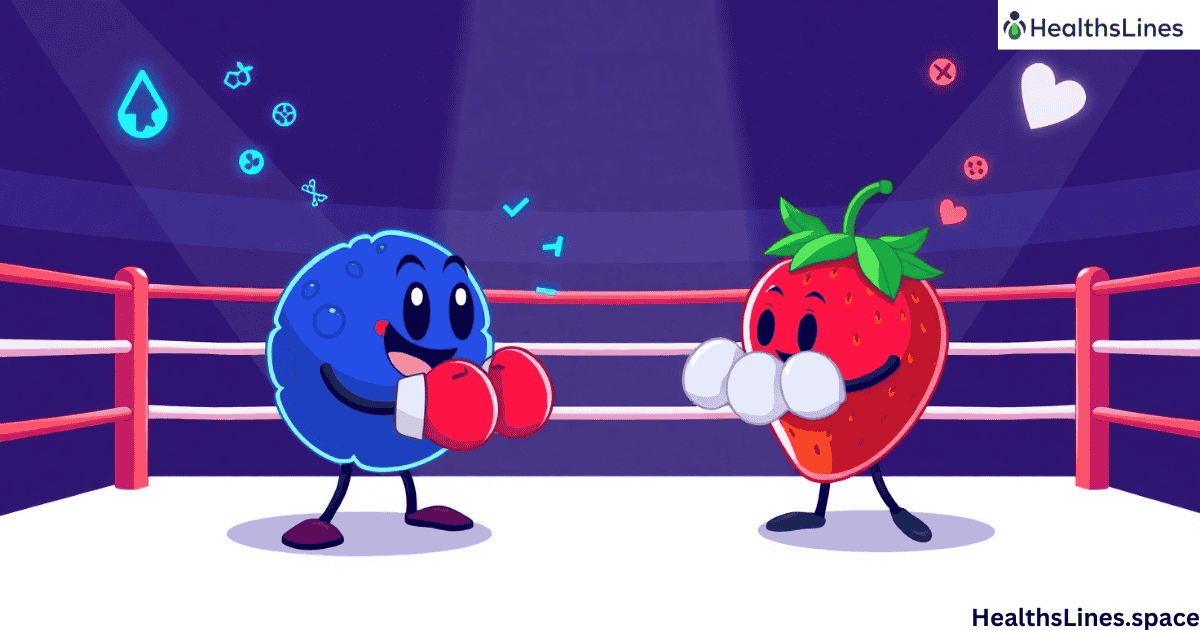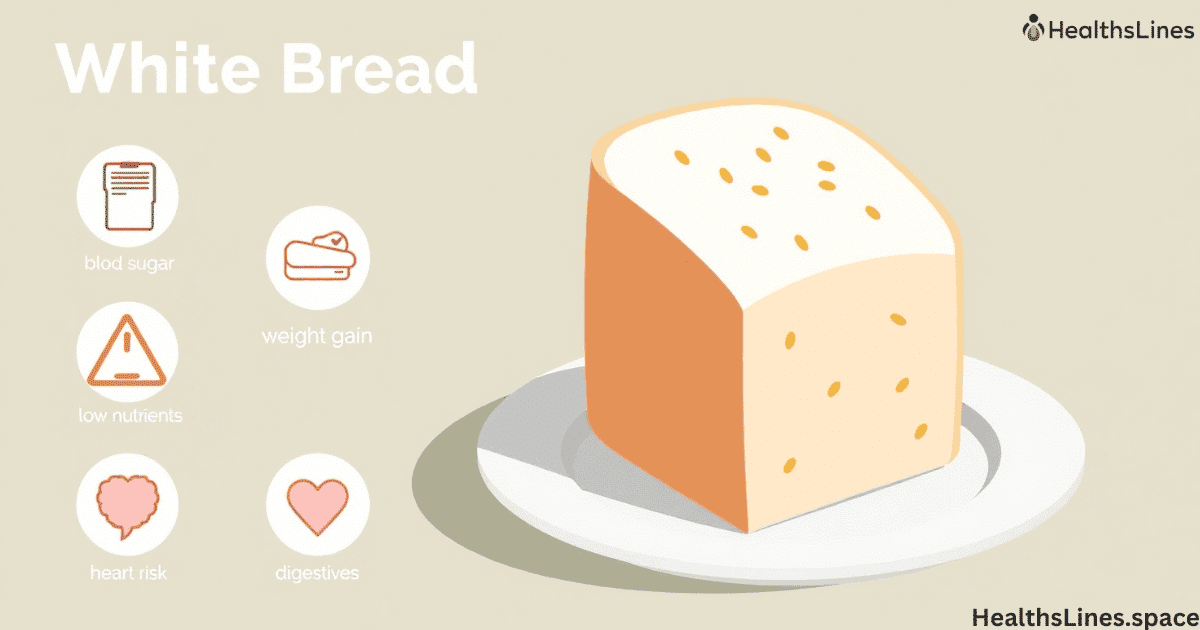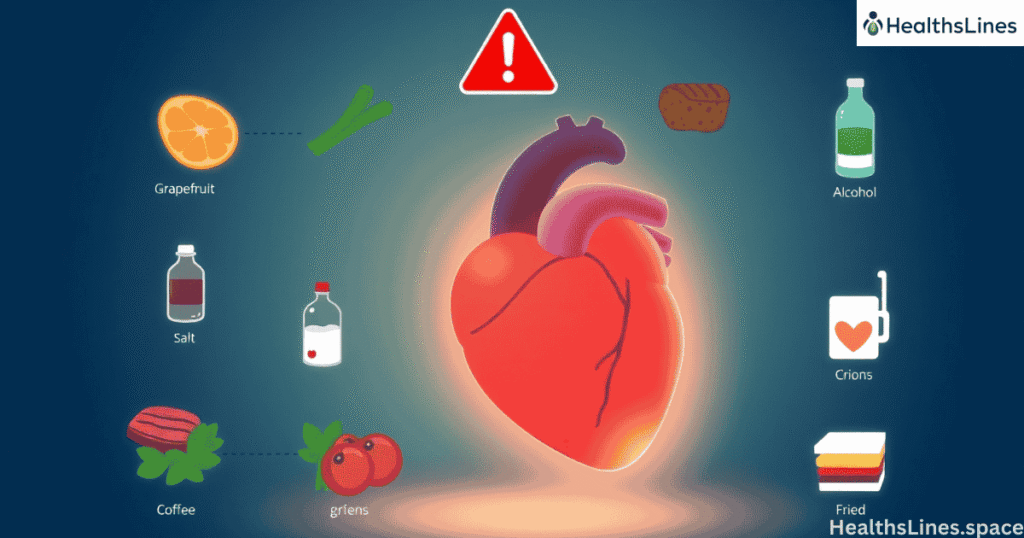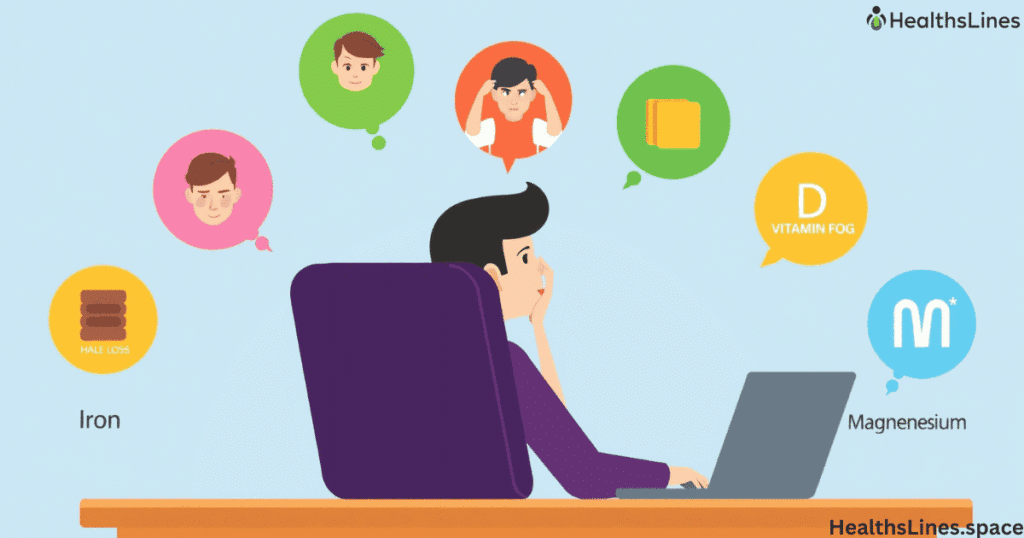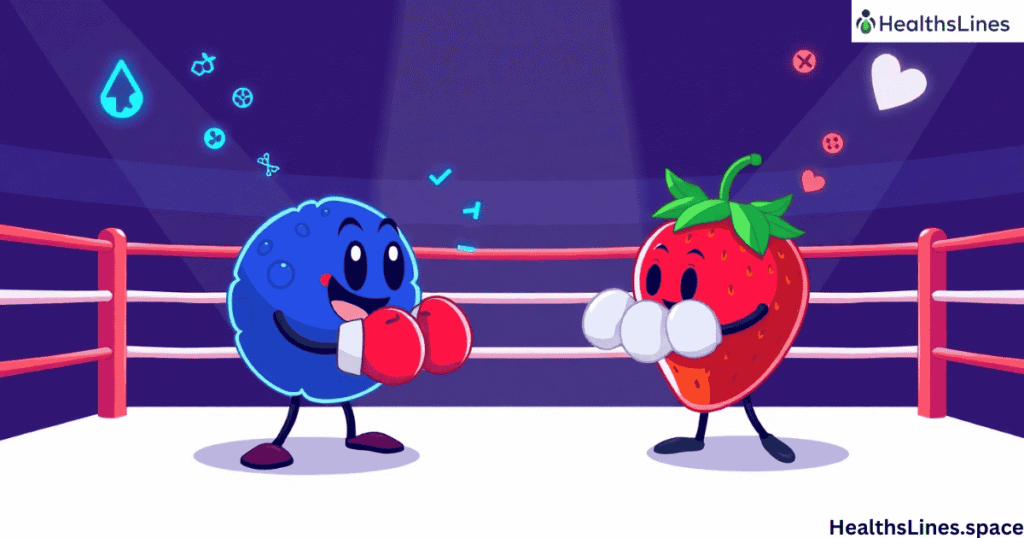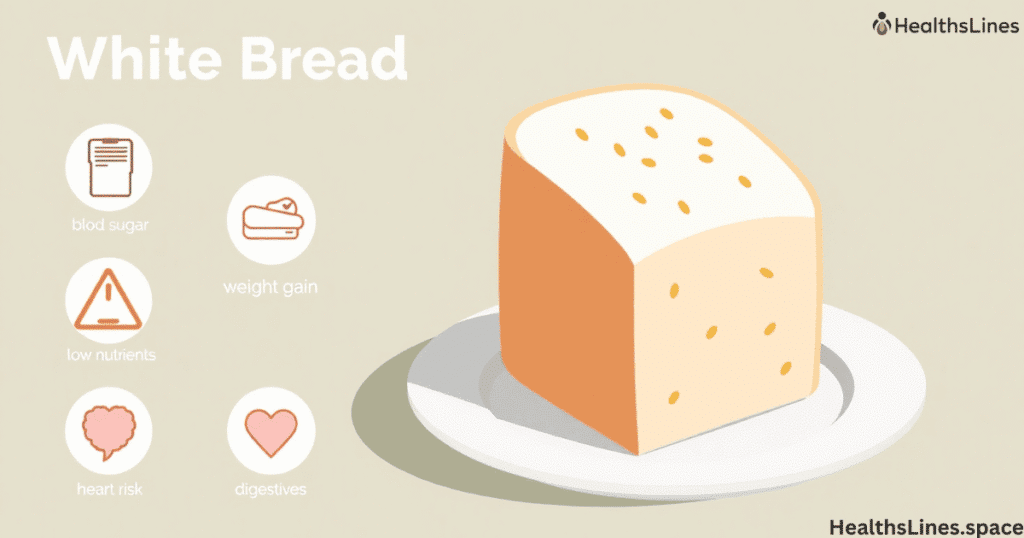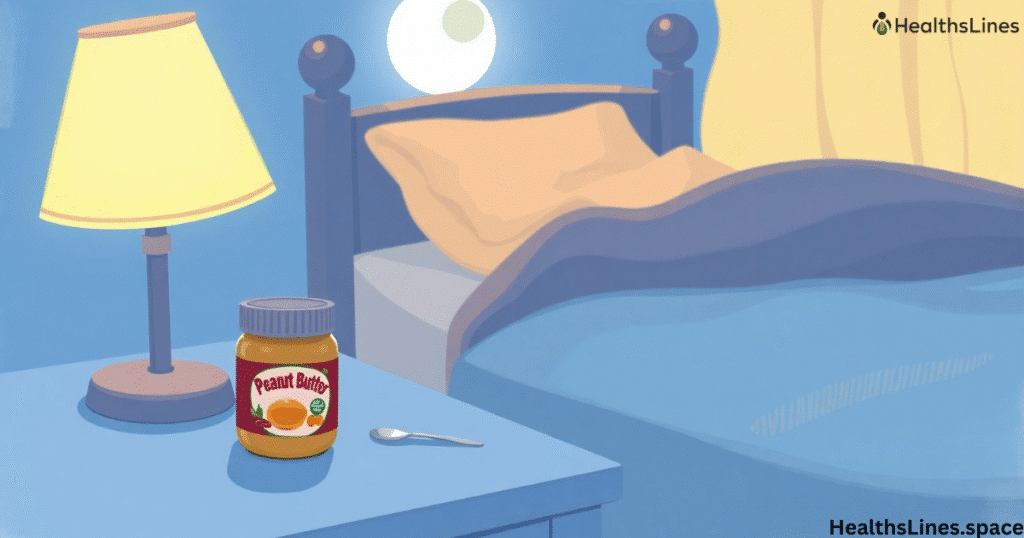Your body needs many vitamins and minerals every single day. These are called essential nutrients. They help your body stay strong, fight sickness, heal wounds, and give you energy. When you don’t get enough of them, your body shows nutrient deficiency signs. These are small warnings, like feeling tired, having weak nails, or even changes in your vision.
Many people ignore these warning signs of nutrient deficiency. They think the problems are small or will go away. But if your body doesn’t get what it needs, the problems can get worse over time. That’s why it’s important to know the early signs of vitamin deficiency. This way, you can fix them before they harm your health.
In this article, we will talk about the 11 warning signs you lack nutrients, the most common nutrient deficiencies, who is at higher risk, and how you can prevent them. We’ll also look at food sources of essential nutrients so you know what to eat to stay healthy.
Constant Fatigue and Low Energy
One of the most common symptoms of nutrient deficiency is feeling tired all the time. This is called fatigue. If you are sleeping enough but still feel weak or out of energy, it may be a fatigue nutrient deficiency. The main causes are iron, vitamin B12, and magnesium deficiency.
Iron helps your blood carry oxygen to your whole body. Without enough iron, you can develop anemia. People with anemia often feel dizzy, weak, and out of breath. Vitamin B12 deficiency signs also include tiredness, since B12 is needed to make healthy red blood cells. Magnesium helps your body produce energy at the smallest level, in your cells. Without it, you feel drained even when you rest.
Doctors share many stories of patients with low iron levels who struggled with daily tasks. Once they added more foods like spinach, beans, and red meat, their energy improved. If you are always exhausted, don’t just think it’s stress or lack of sleep. It may be one of the early signs of nutrient deficiency.
Weak, Brittle, or Dry Hair
Your hair can tell you a lot about your health. If your hair is breaking, thin, or dry, it may be a brittle hair nutrient deficiency. Hair is made mostly of protein, so if you don’t eat enough, your strands become weak. Biotin deficiency also leads to dry and breaking hair. Zinc and omega-3 fatty acids are needed for a healthy scalp and shiny hair.
Researchers studied people who followed very strict diets. Many of them developed hair loss due to nutrient deficiency because they were missing important vitamins. Even if you eat enough calories, your hair can suffer if you miss the right nutrients. So if your hair looks dull or you notice more hair in the shower drain, it could be a sign you lack nutrients.
Fragile, Ridged, or Spoon-Shaped Nails
Your nails are like small windows into your health. If your nails break easily, have ridges, or curve up like a spoon, you might have a weak nails vitamin deficiency. The most common causes are low iron and zinc deficiency.
Iron deficiency can cause spoon-shaped nails. They look thin, soft, and curved upward. Zinc deficiency can cause white spots, slow growth, or ridges. Doctors often check a patient’s nails when they are looking for symptoms of low iron.
Imagine a woman with pale nails that look like small spoons. That simple nail change may mean her body does not have enough iron. That’s why nail health is one of the most useful nutrient deficiency signs.
Mouth and Gum Problems
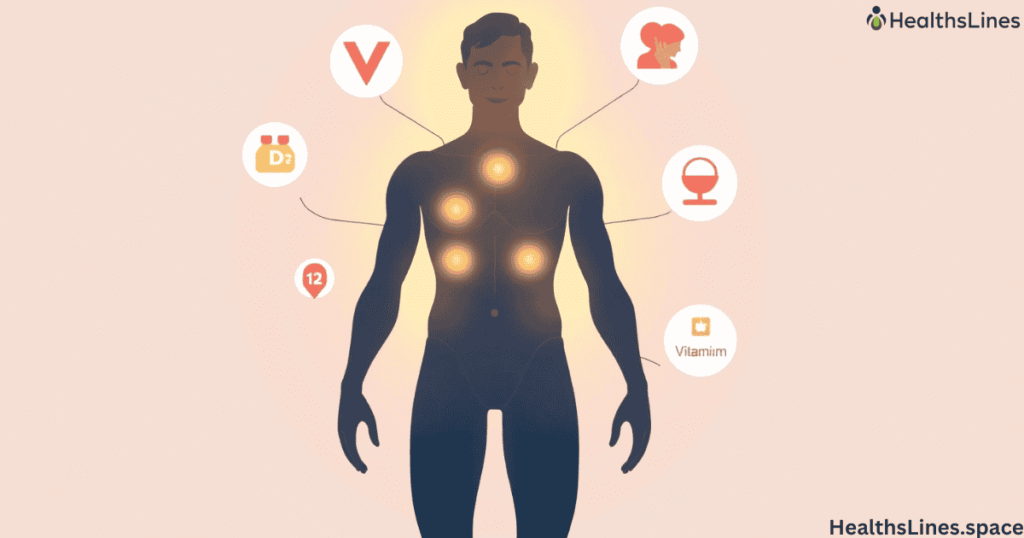
Your mouth shows some of the clearest signs of nutrient deficiency. If you have painful cracks at the corners of your mouth, bleeding gums, or sores on your tongue, these may be mouth problems and vitamin deficiency.
Vitamin C is needed to keep your gums and teeth healthy. Without it, you can develop bleeding gums and loose teeth. Long ago, sailors who did not eat fruits and vegetables got scurvy, which caused their teeth to fall out. Today, people with vitamin C deficiency still show smaller signs like bleeding gums or easy bruising. B vitamins like riboflavin and niacin also cause painful cracks around the mouth when missing. Iron deficiency makes the tongue look smooth and pale.
Even if scurvy sounds like history, mouth problems are still one of the most common symptoms of nutrient deficiency in adults today.
Mood Swings, Irritability, and Appetite Changes
Nutrition doesn’t only affect your body; it also affects your brain. If you often feel moody, sad, or irritated, it could be a mood swings nutrient deficiency. Important nutrients for the brain include omega-3 fatty acids, vitamin D, and B vitamins.
These nutrients help produce brain chemicals like serotonin and dopamine. Without them, you may feel anxious, depressed, or unable to focus. Studies show that adults with vitamin D deficiency are more likely to feel sadness and low energy. People with B vitamin deficiency may notice stress, changes in appetite, and poor memory.
So, if your mood changes quickly or you lose interest in food, it might not just be stress. It could be one of the early signs of vitamin deficiency.
Excessive Hair Loss
It is normal to lose some hair every day. But if you are losing large amounts of hair, it could be hair loss due to nutrient deficiency. The main causes are low iron, vitamin D, zinc, and selenium.
Iron supports hair follicles, and vitamin D helps with new hair growth. Zinc and selenium keep the scalp healthy. Doctors often see patients with vitamin D deficiency in adults who also have thinning hair. When they correct the deficiency, the hair loss often slows down.
If your ponytail feels thinner or you see bald patches, it may be an essential nutrient deficiency that needs care.
Slow-Healing Wounds and Bruising
If your cuts and bruises take too long to heal, it may be a slow healing wound vitamin deficiency. The body needs vitamin C, zinc, and protein to repair tissues and make collagen. Without them, your skin becomes weaker and blood vessels break more easily.
Doctors notice that patients with low vitamin C or zinc often have bruises that stay for weeks. Small cuts may also turn into larger wounds. These signs of nutrient deficiency should not be ignored, because they can lead to infections or slow recovery after surgery.
Burning Sensations in Feet, Hands, or Tongue
A strange burning feet vitamin B deficiency is another warning sign. Vitamins B1, B6, and B12 are vital for healthy nerves. Without them, nerves become damaged, and you may feel tingling, numbness, or burning in your hands, feet, or tongue.
Older adults are more likely to have vitamin B12 deficiency signs because their stomach absorbs less B12 from food. If not treated, this can also affect walking and memory. That is why doctors warn people to take these symptoms seriously.
If you ever feel burning or tingling without a clear cause, it may be one of the nutrient deficiency signs you should check.
Bone and Joint Pain
Pain in bones and joints is often a bone pain vitamin D deficiency. Vitamin D helps your body absorb calcium, which keeps bones strong. Without it, bones become weak and painful, a condition called osteomalacia. Magnesium also plays a role in bone strength. Without it, you may have cramps or stiffness.
A study found that many adults with chronic back pain also had symptoms of low vitamin D. After they started treatment, their pain improved. This shows how bone pain can be one of the hidden signs of nutrient deficiency.
Irregular Heartbeat or Palpitations
Your heart needs minerals to keep a steady beat. An irregular heartbeat mineral deficiency often comes from low magnesium, potassium, or calcium. These minerals control the signals that make your heart contract and relax.
When they are too low, you may feel your heart skip a beat, race, or pound in your chest. Athletes who sweat a lot but don’t replace minerals are at risk of these symptoms. Doctors also warn that ignoring these signs of magnesium deficiency can lead to serious health problems.
If you feel your heart racing without cause, it is not something to ignore. It may be a serious symptom of nutrient deficiency.
Poor Night Vision or Dry Eyes
Your eyes are very sensitive to missing nutrients. Poor night vision vitamin A deficiency is one of the most common examples. Vitamin A helps the eyes adjust to the dark. Without it, you may struggle to see at night or develop dry, painful eyes.
In some countries, vitamin A deficiency is still a major cause of blindness. Even in healthy adults, the first early signs of vitamin deficiency can appear in the eyes. If your vision is blurry at night or your eyes feel dry all the time, you may be missing essential nutrients.
Common Nutrient Deficiencies to Know
The most common nutrient deficiencies are iron, vitamin D, vitamin B12, calcium, magnesium, zinc, and omega-3 fatty acids. Each plays an important role in your health. Iron prevents anemia. Vitamin D keeps your bones strong. B12 protects your nerves and blood. Calcium builds strong bones and teeth. Magnesium supports muscles and nerves. Zinc helps your immune system, and omega-3s protect your heart.
When people ask how to know if you lack vitamins, these are the first nutrients doctors check. These common symptoms of nutrient deficiencies in adults show up often because many people eat processed food or avoid fresh, nutrient-rich meals.
Who Is at Higher Risk?
Some groups of people have a higher chance of developing nutrient deficiency signs. Vegans and vegetarians may miss B12, iron, and zinc because they don’t eat animal foods. Older adults may have a vitamin deficiency in adults because their bodies absorb less. Pregnant and breastfeeding women need extra nutrients like iron, folate, and calcium for their babies. People with stomach or gut problems like Crohn’s or celiac disease also have trouble absorbing nutrients.
People who skip meals, follow extreme diets, or eat mostly processed food are also in danger. These are called nutrient deficiency risk groups, and they must be extra careful about what they eat.
How to Confirm a Nutrient Deficiency
If you are wondering how to tell if you lack essential vitamins and minerals, the answer is to get tested. Medical tests for nutrient deficiency include blood tests that measure iron, vitamin D, B12, calcium, and more. Doctors may also check your skin, hair, nails, and eyes for physical signs of nutrient deficiency.
Many people guess about their symptoms, but guessing is not enough. Fatigue, hair loss, or bone pain can come from many causes. A blood test is the only way to confirm what are the early signs of nutrient deficiency for sure.
Prevention and Recovery Tips
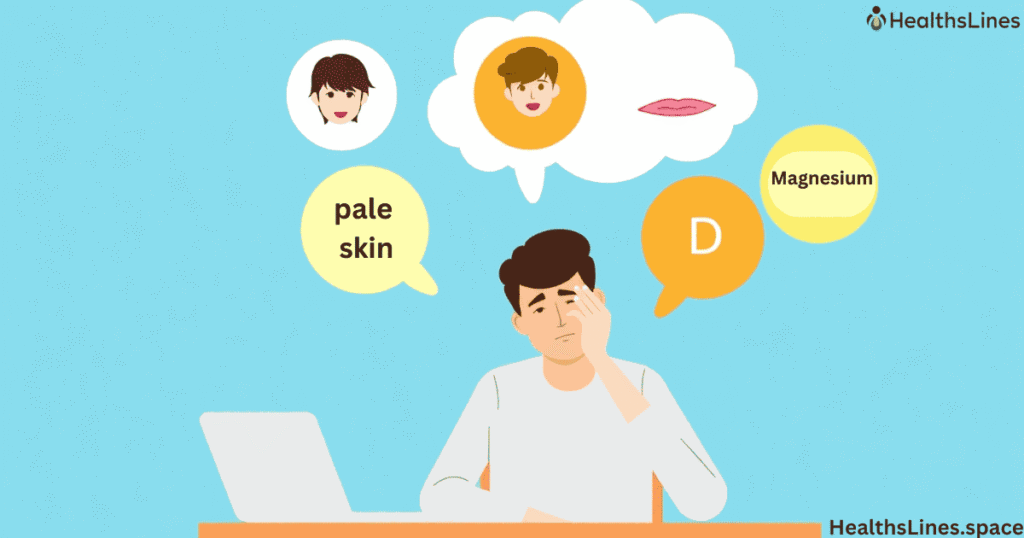
The good news is that you can prevent most signs of nutrient deficiency with a healthy lifestyle. Foods that prevent vitamin and mineral deficiencies include leafy green vegetables, beans, nuts, eggs, milk, lean meats, fish, and fruits. Whole grains also add important minerals. Spending time in sunlight helps your body make vitamin D. Drinking water and eating fermented foods support good digestion, which helps your body absorb nutrients better.
Sometimes, people may need supplements. But they should be taken with care. A doctor can guide you on prevention and recovery tips for nutrient deficiency based on your tests and needs. Eating a wide variety of natural foods is always the best choice.
Table: Nutrient Deficiency Signs, Causes, and Food Sources
| Symptom | Possible Deficiency | Food Sources of Essential Nutrients |
| Constant Fatigue | Iron, B12, Magnesium | Red meat, beans, spinach, nuts |
| Brittle Hair | Biotin, Zinc, Protein | Eggs, salmon, seeds, dairy |
| Weak Nails | Iron, Zinc | Lentils, pumpkin seeds, meat |
| Mouth Problems | Vitamin C, B vitamins | Citrus fruits, leafy greens, whole grains |
| Mood Swings | Vitamin D, Omega-3, B vitamins | Fatty fish, milk, fortified cereals |
| Hair Loss | Iron, Vitamin D, Zinc | Eggs, fish, fortified dairy |
| Slow Healing Wounds | Vitamin C, Zinc, Protein | Oranges, chicken, legumes |
| Burning Sensations | Vitamin B1, B6, B12 | Whole grains, eggs, meat |
| Bone Pain | Vitamin D, Calcium | Dairy, salmon, fortified foods |
| Irregular Heartbeat | Magnesium, Potassium | Bananas, nuts, leafy greens |
| Poor Night Vision | Vitamin A | Carrots, sweet potatoes, liver |
Conclusion
Your body is always talking to you. When you don’t get enough essential nutrients, it shows nutrient deficiency signs in your energy, hair, skin, nails, and even mood. From fatigue nutrient deficiency to poor night vision vitamin A deficiency, these signals should not be ignored. They are your body’s way of asking for help.
The best way to protect yourself is to eat a balanced diet, get tested when needed, and listen to your body. If you pay attention to the symptoms of nutrient deficiency, you can catch problems early. Eating a wide variety of fresh foods and knowing the food sources of essential nutrients will help you stay healthy. Remember, your body whispers before it shouts. If you listen to those whispers, you can stay strong for many years.
